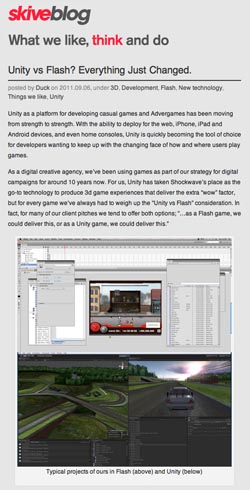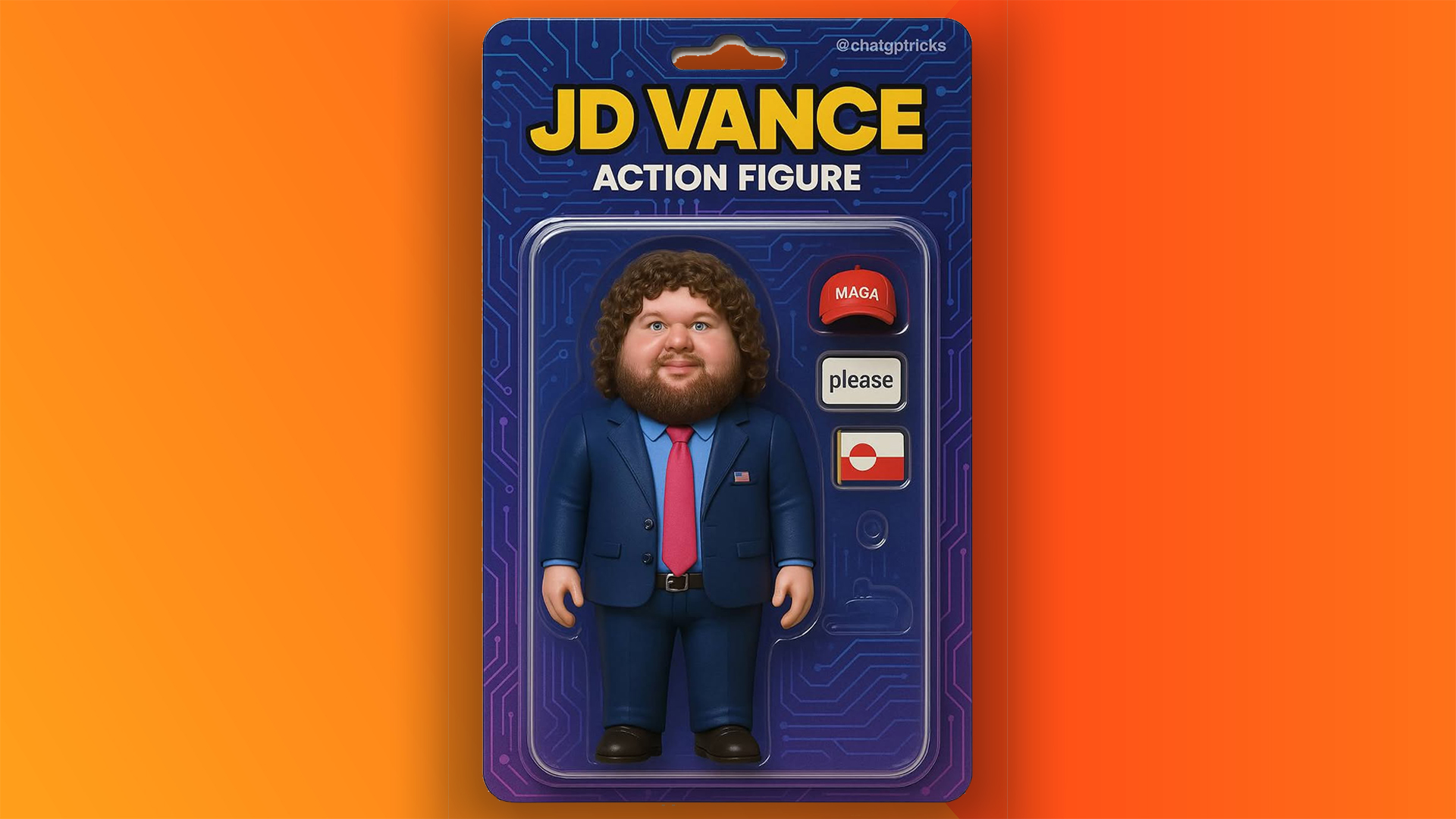Unity’s Flash export feature praised
Boost to online games dev as popular 3D tool to integrate with Flash

On the blog of independent digital creative agency Skive, games developer Ben Pitt says that everything just changed regarding Unity and Flash. Whereas the two technologies once had clear separation and specialisation, Pitt reckons Unity’s upcoming ‘Export to Flash’ feature will lead to more developers shifting to Unity for online games development; however, this isn’t bad news for Adobe, because the knock-on effect could be more Flash games, along with Flash interfaces and 2D components being integrated with Unity 3D projects. The move “not only redefines Unity as one of the most powerful authoring tools for Flash, but I have a feeling that it will to a certain extent redefine Flash itself,” said Pitt.
.net spoke to Pitt, so he could elaborate on what he meant and also on the benefits of this change to developers and Flash itself. He said Flash until recently largely lacked 3D capabilities, while Shockwave and, more recently, Unity, could use the GPU for rendering 3D content. This resulted in Skive and other developers once using Shockwave and now Unity for 3D games, the latter’s strengths including “advanced visual 3D quality, speed, integrated 3D physics and audio, and the integrated editor which ties everything together and makes for very rapid development”. The drawbacks, according to Pitt, are Unity’s low plug-in penetration and the trickiness in “getting 2D animated content working nicely, which makes it harder work to implement title screens and other game-related GUI elements”.
In being able to export to Flash, Pitt said developers will “no longer have to convince clients that our Unity content is worth the drawbacks of end users having to install the Unity plug-in,” since it will be possible to author in Unity and export to Flash.
“This means our decision as to whether Unity content suits any particular brief will come down to more practical considerations about whether it is the right tool for the job, rather than more ‘political’ considerations about how likely end users are to want to install the plug-in,” he added. Furthermore, it’s been announced that it will be possible to integrate exported Unity content into Flash, which Pitt told us will enable Flash developers to add title screens and GUI components that will communicate with an imported Unity 3D project.
“This will be a massive help because it will mean that our graphic designers can use the techniques and tools they’re familiar with to build these elements around the game directly in Flash, just as they would with a native Flash game.”
Pitt added that there are some issues, mostly to do with Flash’s potentially slower performance for projects than Unity’s own plug-in: “This means if we target the Flash plug-in as a platform, we'd adjust the content accordingly so that games still run at the desired speed. While this can be seen as a technical limitation of the technology, I really don't see it as a significant limitation for us as developers. When building content for the web, you already have to consider the wide variety of machines out there that will be used to view your content.” It will also be possible, he said, to publish content that detects installed plug-ins and reacts accordingly.
No timescales have so far been announced by Unity, but Pitt posited that the feature is at a “fairly advanced state” and he hoped it would be released within a year. Unity also offers a 'sneak peek' at the technology on its blog.
Get the Creative Bloq Newsletter
Daily design news, reviews, how-tos and more, as picked by the editors.

Thank you for reading 5 articles this month* Join now for unlimited access
Enjoy your first month for just £1 / $1 / €1
*Read 5 free articles per month without a subscription

Join now for unlimited access
Try first month for just £1 / $1 / €1
The Creative Bloq team is made up of a group of design fans, and has changed and evolved since Creative Bloq began back in 2012. The current website team consists of eight full-time members of staff: Editor Georgia Coggan, Deputy Editor Rosie Hilder, Ecommerce Editor Beren Neale, Senior News Editor Daniel Piper, Editor, Digital Art and 3D Ian Dean, Tech Reviews Editor Erlingur Einarsson, Ecommerce Writer Beth Nicholls and Staff Writer Natalie Fear, as well as a roster of freelancers from around the world. The ImagineFX magazine team also pitch in, ensuring that content from leading digital art publication ImagineFX is represented on Creative Bloq.
